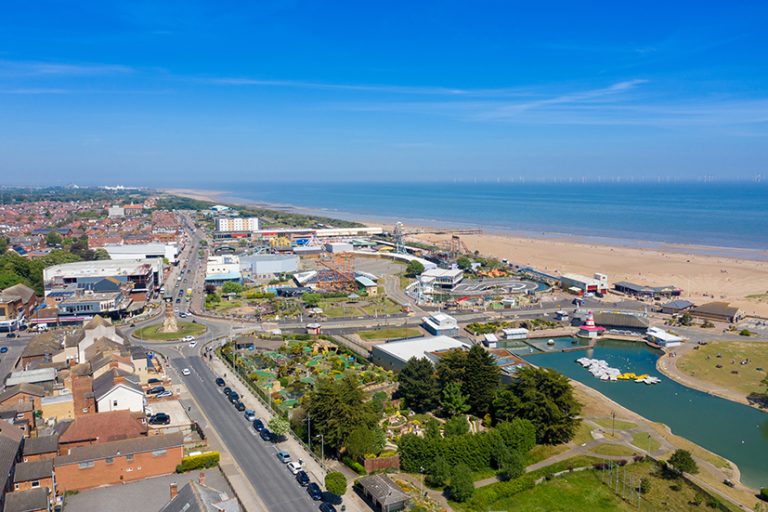Sheffield City Council has issued a prohibition notice for the North Stand at Sheffield Wednesday’s Hillsborough Stadium.
It follows a meeting of the Safety Advisory Group on 18th July and subsequent discussions with the club. A prohibition notice is a formal document issued to a club by a local authority to prevent spectators entering a football ground or specific stand until the specified work to resolve the issue has been completed to the satisfaction of the local authority. Assurances around the structural integrity of the North Stand have not been provided by Sheffield Wednesday Football Club, according to the Council, and as the body responsible for the safety of sports grounds and all spectators, the Council has been forced to make this decision to not allow spectators into the North Stand. The Council would need the necessary professional assurances that the ground is safe before the prohibition notice would be lifted. Councillor Joe Otten, chair of the Environmental Services and Regulation Policy Committee at Sheffield City Council, said: “It is our role to ensure the safety of all sports grounds for all spectators. We have been working with Sheffield Wednesday Football Club for some time, through the Safety Advisory Group which we chair, to seek reassurance that the North Stand is structurally compliant. “Because we haven’t been given that professional reassurance, we are regrettably in a position where we must issue a notice prohibiting spectators in the North Stand until we can be absolutely assured that the required work has been undertaken to the satisfaction of the council as certifying authority. We have done this immediately, following an assessment by engineering specialists who can no longer confirm that the North Stand is safe for spectator use. “We recognise that this is a very difficult situation, and we will continue working closely with the club and provide support and guidance where we can. We as much as anyone want to see the fans enjoying football at Sheffield Wednesday next season.”Coastal businesses face challenges as visitor numbers drop
Coastal businesses in Skegness and Mablethorpe are experiencing a significant decline in visitor numbers compared to last year. Economic uncertainty is leading many families to reduce or cancel holiday plans, impacting businesses that rely heavily on tourism.
Councillor Courtney Robinson, representing Mablethorpe, highlighted the struggles faced by local businesses. Many regular visitors are cutting down their trips, with some making just one visit per year instead of several. This has left businesses depending on the summer holiday period for survival. Coastal communities, already economically disadvantaged, are particularly vulnerable when tourism drops.
Mary Powell, the council’s tourism manager, noted that all seaside resorts are facing similar downturns. She explained that when finances are tight, holidays are often the first expense families cut, leading to shorter stays and last-minute bookings that are harder for businesses to manage. The council is ramping up efforts to promote the coast during the summer and autumn months, though the current national mood presents additional challenges.
There is also a push to attract a younger demographic to coastal areas, traditionally favoured by older generations. Local leaders believe that re-engaging with younger visitors could be crucial in sustaining the local tourism economy, which contributes £3bn annually to Lincolnshire’s economy, though still below pre-pandemic levels.
Humber Freeport appoints new chair
Pontefract’s Number 1 Letting acquired by Dwelly
Rathlin Energy’s West Newton permit variation consultation opens
The Environment Agency has launched a consultation on the draft decision to approve a permit variation for Rathlin Energy UK Ltd’s West Newton site in East Yorkshire. This follows the company’s request to amend its existing environmental permit for the West Newton A well site at Fosham Road in High Fosham.
Since 2013, Rathlin Energy has been drilling at the site. The application includes a request to perform well stimulation, a process aimed at improving oil and gas flow from the WNA-2 well. The proposed changes also involve adjustments to surface water discharge and the crude oil storage facility location. Additionally, the company is seeking approval for a ‘mining waste facility’ due to the extractive waste generated by the stimulation process.
This consultation follows a prior one held late last year. After reviewing the previous feedback, the Environment Agency has found no reason to refuse the application at this stage but is inviting further comments before making a final decision. The consultation will remain open until September 9, 2025.
Operators in the mining and extractive industries are required to hold environmental permits, which outline the conditions under which they must operate to mitigate risks to both people and the environment. Permits are only granted if all legal requirements are met, including ensuring no harmful environmental impact or risks to human health.
Comments can be submitted via the Environment Agency’s consultation platform or by email. Those unable to access the platform online can reach the agency by phone for assistance.
New director appointed to drive Yorkshire industrial and logistic sector growth for Wilton Developments
Fleet conversion specialist seals major lease agreement in Doncaster
cardfactory to acquire funkypigeon.com from WH Smith
Wakefield-based cardfactory has entered into an agreement to acquire funkypigeon.com from WH Smith for cash consideration of £24m.
funkypigeon.com operates an online personalised card and attached gifting business, which is supported by its standalone team in Bristol and Guernsey. Over the prior two financial years, Funky Pigeon on average generated £32m revenue per annum and £5m EBITDA.
The acquisition of Funky Pigeon accelerates cardfactory’s digital strategy, providing a platform for online growth, particularly in the direct-to-recipient card and attached gifting market.
By combining Funky Pigeon’s digital platform with cardfactory’s existing omnichannel offer, the business intends to leverage its 24 million unique store customers to develop “a highly competitive online presence in the celebration occasions market.”
Upon completion, cardfactory will be the second largest online card and attached gift retailer in the UK market.
Darcy Willson-Rymer, cardfactory CEO, said: “This acquisition marks a significant step forward in cardfactory’s strategy to build a scaled, competitive digital presence in the celebration occasions market.
“It brings a high-quality platform and proven technology, accelerating our ability to compete in the direct-to-recipient card and gifting segment, so supporting our ambition to become the leading omnichannel retailer in our sector.
“Together, the enlarged customer base will benefit from a richer, more convenient customer proposition, combining the strength of our nationwide store estate and wider celebrations offer with Funky Pigeon’s exceptional digital experience.
“Operational efficiencies, fulfilment synergies, and a unified technology platform will provide the data needed to develop deeper insights into the customer journey, enabling us to build a stronger, more integrated omnichannel business.
“The Board and wider cardfactory team look forward to welcoming Funky Pigeon colleagues to the Group.”
Future secured for Mighty Drinks brand
AI workshop series helps SMEs in the north and Midlands adapt to digital transformation
Connectus Business Solutions has launched a new series of free workshops aimed at helping SMEs in the north of England and the Midlands become more AI-ready. The “Evolve AI” initiative, developed in partnership with Doncaster-based Automated Analytics, is designed to provide business owners and decision-makers with practical, actionable insights into AI adoption.
The workshops will focus on demystifying AI technologies and providing tangible steps for integrating AI into businesses. Key concerns, including cost, skills shortages, job displacement, and regulatory uncertainty, will also be addressed throughout the series.
The sessions, running in the second half of 2025, will take place at various locations across the region, starting with an event at Castle Park, Doncaster, on 18th September. Each workshop will be followed by support materials to assist participants in continuing their AI journey.
AI adoption is gaining momentum in the UK, with a projected £78 billion boost to the SME economy over the next decade. However, many SMEs still lack the confidence, expertise, or resources to effectively implement AI. Connectus aims to bridge these gaps by offering a hands-on learning environment where leaders can explore AI’s business value, including automation of routine processes and smarter decision-making.
With its focus on business value and real-world case studies, the workshops will help SMEs identify the most cost-effective ways to adopt AI without major disruptions.












